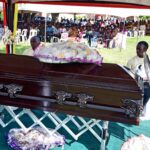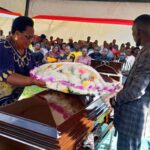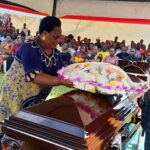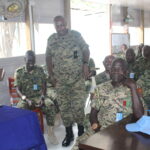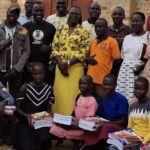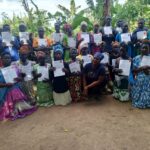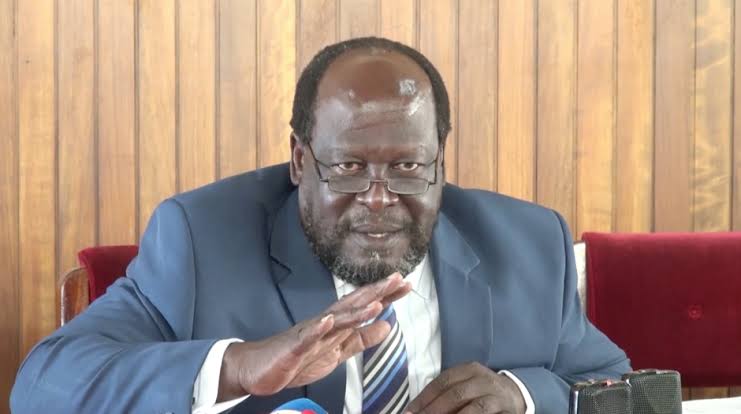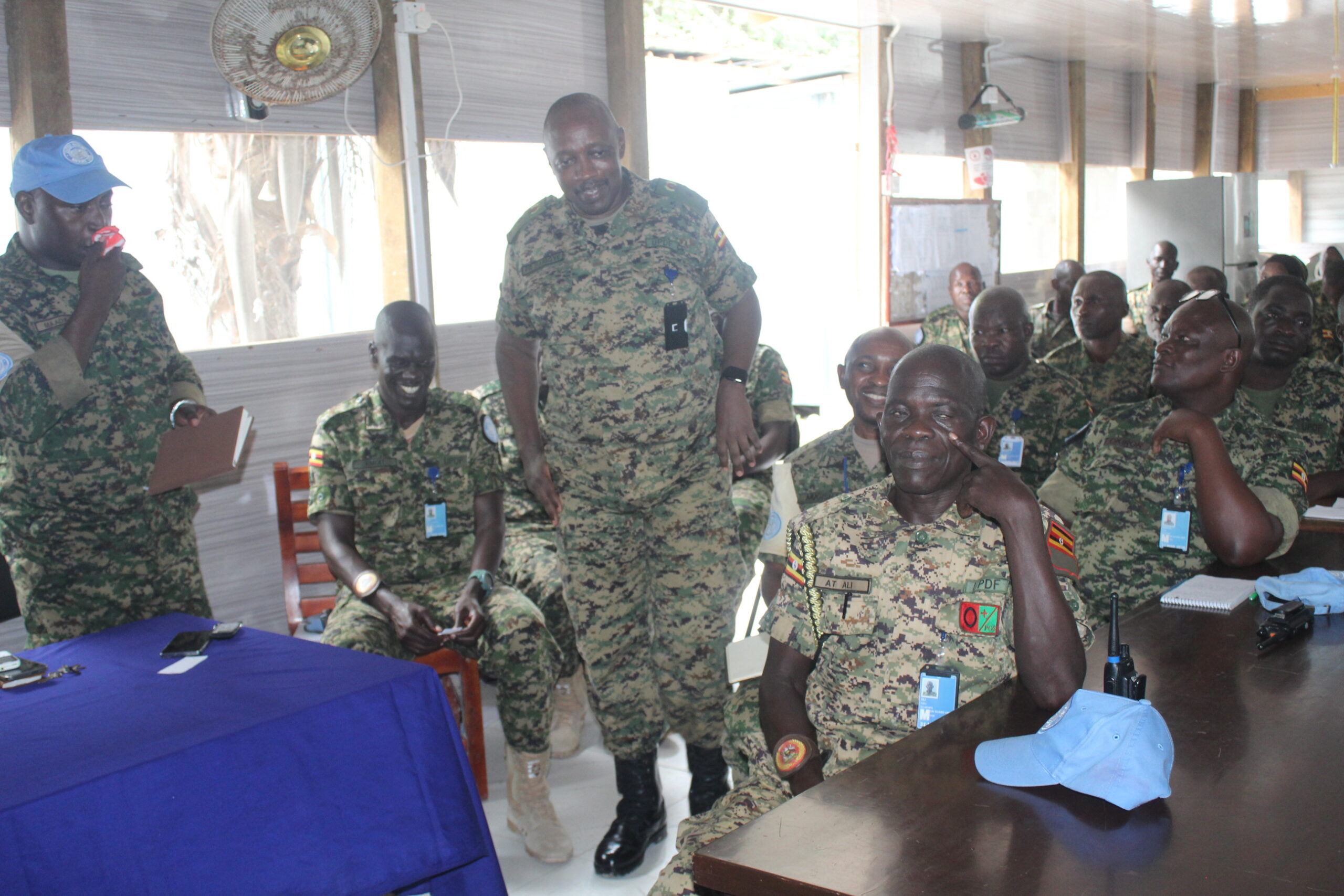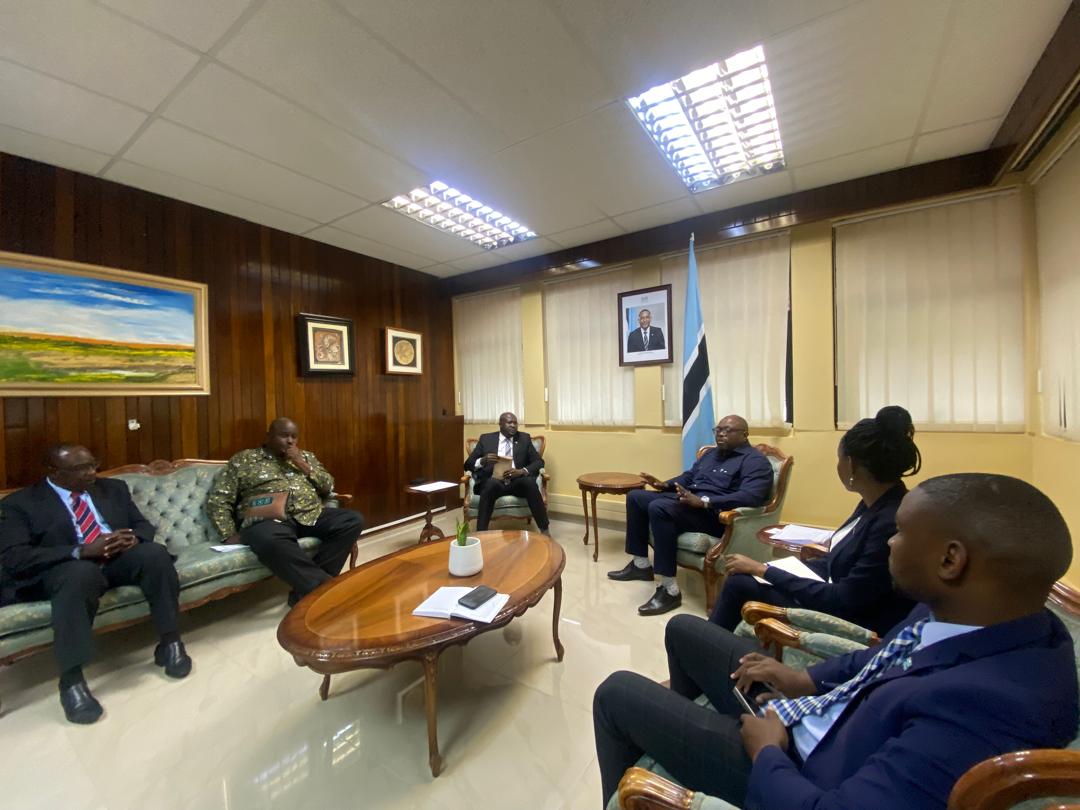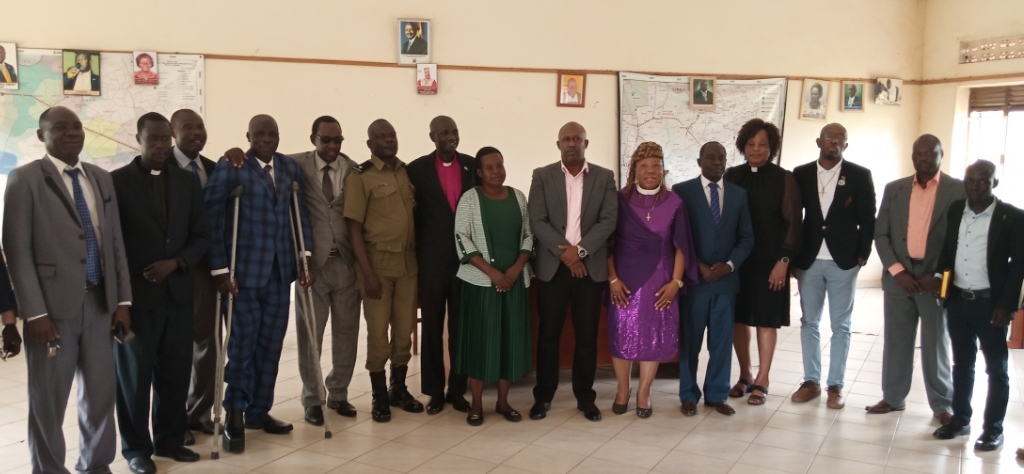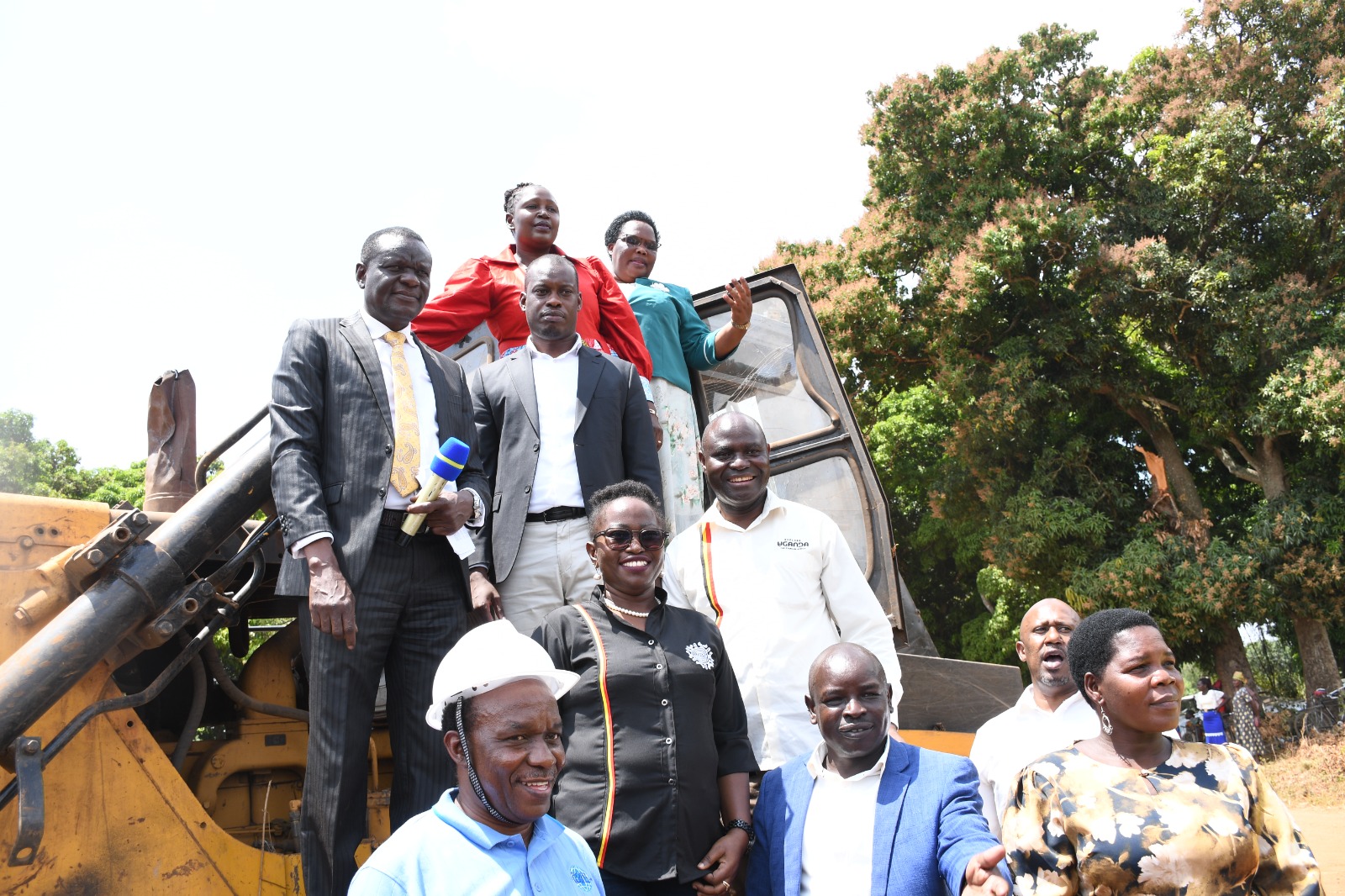Besigye’s life is about “Walk to Work,” but if you tell him this is the right path to take, you become an enemy, say Prof Ogenga Latigo.
As Uganda gears up for the 2026 general elections, Professor Morris Ogenga Latigo, the former Leader of the Opposition in Parliament, has warned Ugandans against the former presidential candidate Dr Kizza Besigye and the leader of the National Unity Platform (NUP), Robert Kyagulanyi, alias Bobi Wine, saying the two cannot do much for the country based on his experience with them.
In an interview with the Nile Post, Prof Latigo stated that only those who are opportunists or too frustrated will follow what the two are doing.
The Leader of the Opposition rallied Opposition MPs to boycott the ongoing regional sittings. What do you make of that decision?
He has a strong basis for doing that. He has a strong justification for telling the Opposition not to attend the regional sittings. The Speaker has not treated him as the Leader of the Opposition objectively. First of all, the former Leader of the Opposition (Mathias Mpuuga) was in the Parliamentary Commission by virtue of his occupying the office of the Leader of the Opposition.
When he was removed, he ceased to be a member of the Parliamentary Commission in law, but the Speaker insisted on retaining him and disregarding Joel Ssenyonyi. That Parliament doesn’t belong to Speaker Anita Among; it belongs to the people of Uganda. The Speaker is merely a presiding officer and an independent arbiter.
You seem to suggest that the LoP was not consulted about these regional sittings?
In 2008, Parliament actually went and sat in Masaka because there were serious problems, like suggestions for new roads that affected people’s buildings, among other things, and there was chaos. We sat down as a Parliamentary Business Committee with the Speaker after initial consultations, and we agreed that the best thing was to highlight these issues by taking Parliament to Masaka.
That decision was not made by Speaker Edward Ssekandi (it was through consultations). Regarding these regional sittings, you can check anywhere; the discussion and the decision on what to do, everything was decided by the Speaker. That is not how Parliament is run, even if the idea is good, if the methodology is wrong, it remains wrong.
The Opposition also says that a lot of taxpayer money will be wasted.
You see, that issue should not have been discussed in the media. If a meeting to consider having regional meetings had first been discussed at the Parliamentary Commission or Business Committee level, those decisions would have been made quietly. Whatever decision was made, the issues which are now points of contention or diversion would have been resolved. Joel Ssenyonyi is speaking because he had no opportunity to speak before the decision was made; the decision was imposed on him and the Opposition.
In your view, do you think these sittings will solve regional problems?
No, even our sittings in Kampala never solved Uganda’s problems. It would be very important to discuss if it was the Speaker’s idea why there should be regional sittings, and she should bring out the issues. Even the business to be discussed should be tailored to address or achieve the objectives. The problem in Uganda is that people think if you occupy an office, you know everything. That is the tragedy of our country.
Should the LoP discipline those who defied and attended the regional sittings?
It depends; the Leader of the Opposition is not the leader of every single Opposition party in Parliament. His strong authority lies within his party. Any party member who defies the position of the Leader of the Opposition risks not being sponsored by the party, and such a member can be brought to order; that is legitimate. However, Joel Ssenyonyi didn’t stop a DP, UPC, or any opposition member from going because I think the declaration that they would not go to Gulu was not based on a situation where they sat together and agreed.
Does defying the Leader of the Opposition indicate disunity among the opposition?
It doesn’t indicate a divided opposition; it indicates divided interests. Even when I was the Leader of the Opposition and we decided we would buy Najjanankumbi (FDC headquarters), I read the proposal at FDC meetings that every Member of Parliament would pay a monthly contribution of Shs300,000, and I, as the Leader of the Opposition, would pay Shs600,000. Some of our members didn’t agree to the Shs300,000 monthly deduction from their emoluments. I can openly tell you [former Aruu County MP] Samuel Odonga Otto didn’t pay, but he didn’t cease to be a member of the party. Sometimes small things should not be allowed to divide the party.
Parliament has granted leave to Richard Lumu of the Democratic Party (DP) to introduce a private member’s bill allowing all opposition members to elect the LoP. What do you think about this move?
If anybody cares to look at the Administration of Parliament Act as amended in 2016, it clearly defines what the official opposition is. There are only two sides in the House: the government side and the Opposition. The Administration of Parliament Act says that the Leader of the Opposition will be elected by the official Opposition in Parliament or the party that has the majority in Parliament because that can change.
If this bill is passed, in your view, who benefits from it: the National Resistance Movement or the Opposition?
Giving the green light to table a private member’s bill is one step; the next thing is to see the content of that bill. I will only comment about it when I see the content of the bill. If it is amending the provision that the official opposition will elect the Leader of the Opposition and says the entire opposition will elect, that will be contested in court even if passed. The intention is evil or merely reflects the stupidity of the person who is proposing the bill.
The President was in Gulu, where he called upon the north to move past the effects of the war. What do you think of his message?
How can you move past the effects of the war by word of mouth? We have the highest level of poverty. Address these issues, not by giving people money. I have argued about this giving of money, but I don’t understand it. It cannot address the issues in the region.
By the way, some of us in the north are the most educated and clear-headed people in this country. If you want to help, involve all of us without discrimination. We can discuss the challenges that exist, propose, and agree on the best way forward. Nobody has a monopoly on what needs to be done.
We don’t have a future; I talked about the psycho-social effects of the war a long time ago, actually in the Seventh Parliament in a meeting in Kitgum. Nobody addresses that; instead, they focus on giving money, which just destroys people more and more. The challenge is not in the north; the challenge is in the leadership approach that President Museveni exercises in this country.
What should be done to change that approach?
It is not what should be done; the ball is in the hands of President Museveni. It is up to him to decide. Julius Nyerere decided in spite of all the excellent intentions for Tanzania. Living in this country becomes very difficult because simple, common-sense solutions our leaders don’t seem to see, and it makes people begin to believe that the President and his group don’t mean well for the rest of the country. No country should have people thinking like that, and no President should ignore such sentiments.
From your submission, I gather that the President has not fulfilled his promise to the war debt claimants.
That is a waste of time. People get the money and they spend it. Regarding compensation, my family had the largest herd of cattle. We refused to apply for cattle compensation because, in the past, a cattle disease could come and wipe out the entire herd in communities. What we did was work very hard, more than the rest, to buy one calf, keep it well, and eventually, your herd would come back.
Nobody gives you a herd of cattle. People believed they would be given, so they folded their hands, and terrible poverty hit the region because people waited for politicians to throw money at them, waited for politicians to pay fees for their children, waited for the government to give them Parish Development Model money, among others. The day they get money, they get drunk; it is so painful.
There was a clash between the President and Speaker Among about the four-hectare model, where the President says it is good for the region while the Speaker says it is not.
I will respond as a professor in agriculture. The environment in the north is different from the environment in Uganda or the West. Land availability is different, and labour is different. Why would you promote a four-hectare model when, in Agogo, I have 200 hectares? Why don’t we have an agricultural bank where I can go and borrow money to develop the 200 hectares the way I want? Why don’t we have extension workers who are committed and accountable, and who will help the farmers, instead of asking MPs to teach the farmers, many of whom don’t know how to speak English?
The four-hectare model doesn’t address the challenges we need to solve to create transformation in our communities. In Uganda, where we depend on agriculture, there is no agricultural bank. Our country kills the spirit of those who are honest, clear-minded, and committed to the country’s progress.
The FDC Katonga faction has decided to dissolve the party. What do you think?
It is the usual gimmicks of Dr Besigye, which I have never been a part of because politics is not showmanship; it is a very serious business. It is about the future of the country and the lives of the people. If there are two factions, how can one faction dissolve the party? Besigye’s life is about “Walk to Work,” but if you tell him this is the right path to take, you become an enemy, and that is why some of us were pushed away a long time ago.
Nathan Nandala Mafabi and Patrick Amuriat also pushed him away. People should forget about Besigye because even if you gave him the presidency now, there is nothing he could do. Only those who are opportunists or those who are too frustrated to remain sober will follow what he is doing.
Ever since the rise of Bobi Wine, some people wish for Dr Besigye to actively participate in politics, saying he is better than Bobi Wine. What do you think?
Those saying that have never experienced Besigye, so how can they make a judgment of him? I am telling you this because I have experienced Besigye, and I have seen Bobi Wine. By the way, in the last election, I told my people, “Let us vote for President Museveni so that he serves his last term and goes.” I didn’t support Bobi Wine because I don’t believe he can lead this country.
Why do you think Bobi Wine cannot lead this country?
It is because he is not like Latigo. He can’t lead this country.
If you say Bobi Wine and Besigye cannot do much for the country, then who can lead this country?
They will just play the role of agitators, like the street people who caused problems in Nairobi, causing problems to express discontent but not providing leadership. One issue in this country is that we don’t recognise the fact that one of the best can be a leader and that those best would not want to dirty themselves.
Some people say Museveni has not faced any resistance since the National Unity Platform became the leading opposition party in the country.
The problem is that people focus more on the opposition than on Museveni himself. It is a tragedy to focus on the opposition rather than on Museveni. They should not focus on those who are merely an extension of him. It is like focusing on the symptoms, such as fever, rather than dealing with the malaria that is causing it.
In 2014, I wrote an article on political succession, questioning why we cannot learn from the fact that the dominance of President Museveni will lead to a chaotic situation, as seen in Iraq, Somalia, Libya, and other countries. This is because institutions are absent, principles and commitments are lacking, and there are no common aspirations.
There is a lot of bickering among opposition political parties, including NUP, FDC, UPC, and others. Where does this leave the opposition?
This is the mistake. The media likes to talk about “the Opposition.” But who is the Opposition? The Opposition is Ugandans with genuine concerns. If my concern is different from that of President Museveni, it doesn’t make me “the Opposition.” In Kenya, when parties go to elections, do you hear about “the Opposition”? No, you hear them talking about a particular person.
Will you contest for the Member of Parliament seat again in 2026?
Why don’t you ask me if I want to contest for the presidency? (laughs) I’m just asking you, why do you think I deserve to contest as a Member of Parliament and not as President?
Why have you never shown interest in running for the top seat in this country?
It is because the environment does not allow it. I am an intellectual; I don’t use the microphone. Where a microphone is involved, I shy away. If there were politics in this country where intellectuals took precedence, you would see Latigo very high up, and the country would give me the mandate and be very proud of what I would do as president.
But under these circumstances, I will never shed anybody’s blood to become president, and I will never hurt any Ugandan’s feelings to be president. As long as the circumstances do not allow me to bring people together like Kamala Harris in the US, you will never see any aspiration from me.


